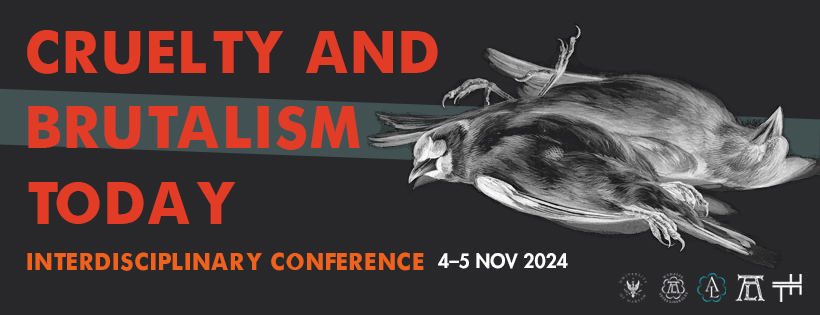Ewa Mazierska
(University of Central Lancashire)
Abstract:
The call for papers on ‘Cruelty and Brutalism Today’ suggests that we live in particularly cruel times. In my paper I want to take a partly polemical stand towards the points made in this call, by contextualising the apparent contemporary cruelty and brutalism in relation to history. My point of departure is the influential book by Marshall Berman, All That Is Solid Melts Into Air: The Experience of Modernity, published first in 1982. Its title refers to The Communist Manifesto by Marx and Engels that pronounces that capitalism, which is the main characteristic of the modern age, destroys the solid world which existed beforehand. Marx observes this destruction or ‘melting’ with horror and admiration. Berman, similarly, recognises the violence of modernity, but he is its unapologetic defender, claiming that we must never forget ‘the cruelty and brutality of so many of the forms of life that modernization has wiped out’.
During the forty or so years, since Berman’s book was published, we have observed many changes, some of which are mentioned in the CfP, such as the growth of (unmediated) social media. I argue, however, that they are part of the same processes of modernisation, described by Berman, which have technological and social dimensions. These changes point to opposite directions: democratisation of entrance into the fight for positions of prestige, influence and power, and increased difficulty to reach these positions, due to a growing competition. The paradox of opening the new possibilities for everybody is thus more disappointment and disillusionment than might be the case if people were locked in their prescribed roles, as was the case in ancient and medieval times, which might appear cruel. The question is how to deal with this disillusionment on the social and personal level.
Bio:
Ewa Mazierska is Professor of Film Studies at the University of Central Lancashire, UK. She published over thirty monographs and edited collections on film and popular music, including Popular Polish Electronic Music, 1970–2020: Cultural History (Routledge, 2021), Polish Popular Music on Screen (Palgrave, 2021) and Poland Daily: Economy, Work, Consumption and Social Class in Polish Cinema (Berghahn, 2017), and monographs of several directors, such as Roman Polanski, Jerzy Skolimowski and Nanni Moretti. She is the principal editor of Studies in Eastern European Cinema. Her work was translated to over 20 languages. Mazierska’s new project concerns Roman Polanski’s films after The Pianist.
